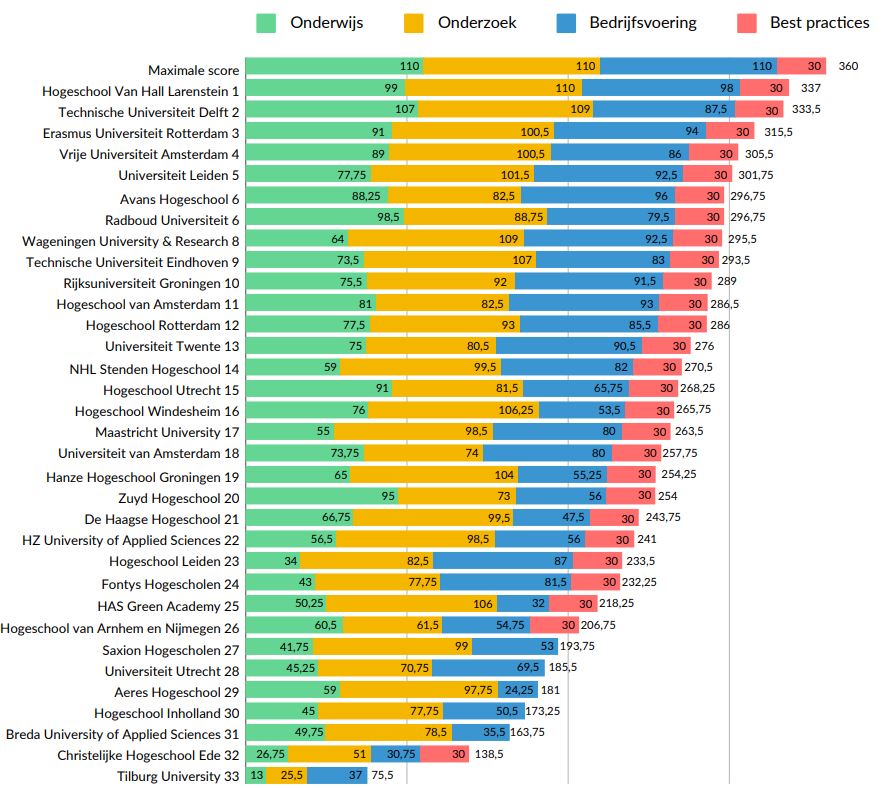TU Delft has reached the top three in Sustainabul’s sustainability ranking for the first time. TU Delft is ranked second after the Van Hall Larenstein University of Applied Sciences and this makes it the highest ranking university.
Students for Tomorrow, an idealistic student network, put TU Delft’s score at 333.5 points out of 360 in its benchmark report. The report covers four areas. In one of these, education, TU Delft got 107 out of 110 points.
It was the first time that TU Delft scored so highly on this point. In 2022, TU Delft was still at 52.75 points and in 2023 at 72 points. It then ranked much lower on the ranking, at twelfth and eighth place respectively.
Green database
Students for Tomorrow explains TU Delft’s score this year being so high because it has stated ‘that sustainability must feature in all the education’ in its policies. The report also recognises that TU Delft ‘is actively working on improving and making the degree programmes more sustainable’. Just like other universities such as the Free University of Amsterdam, TU Delft has a database in which students can see what subjects include which of the United Nations’ Sustainable Development Goals.
This Green Database was the reason that TU Delft was nominated for the prize for the best example in practice and earned the maximum number of bonus points (30). But in the end, Radboud University went off with the prize.
In terms of research, TU Delft almost achieved the maximum number of points: 109 out of 110 points. These are mostly for sustainability in research, projects and valorisation. The most gains are to be made in operations. TU Delft got 87.5 out of 110 points. In this area, the Students for Tomorrow looked at efforts to reduce emissions and energy consumption among other things.
Links with the fossil fuel industry
The Sustainabul was started in 2012. This is the fourth time that the University of Applied Sciences Van Hall Larenstein tops the list (see the ranking below). This academic institution has branches in Leeuwarden and Velp and won in 2020, 2022 and 2023.
The people who compile the ranking first look at the information that they can find about sustainability themselves. Then they ask the academic institutions for a reaction. They then decide on the definitive scores.
The students look beyond only including aspects such as reducing CO2 emissions or reducing food waste. Under the heading ‘social sustainability’, they also look at diversity and inclusion.
The students do not ask about ties with the fossil fuel industry directly. Pressure groups made up of researchers and students want higher education to cut ties with companies such as Shell. This led to several academic institutions, including TU Delft, being occupied last year.
Green is education, yellow is research, blue is operations.

Do you have a question or comment about this article?
s.m.bonger@tudelft.nl


Comments are closed.